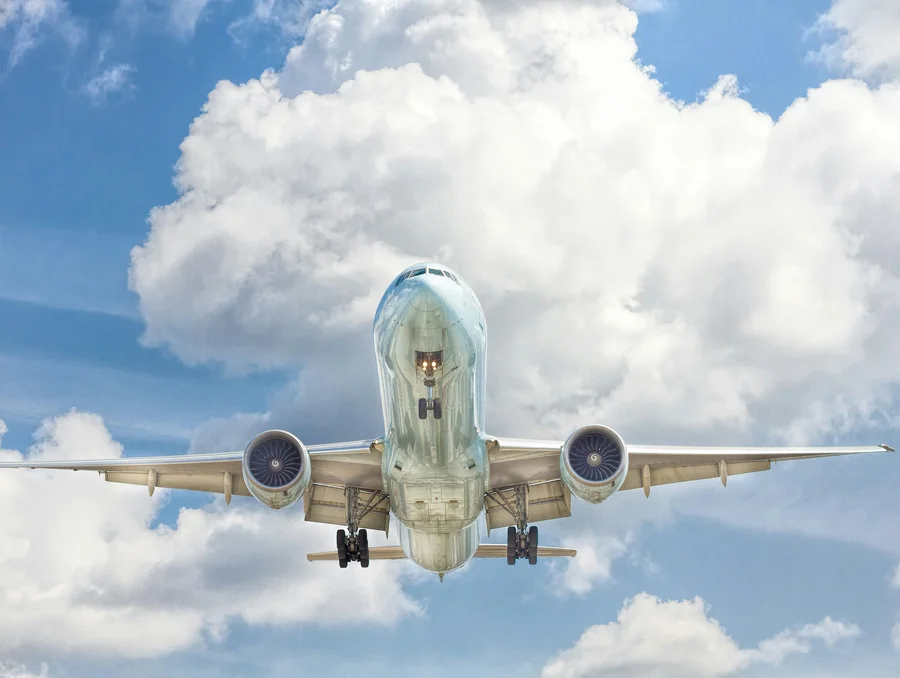IATA has launched the Integrated Sustainability Programme, which will provide airlines with a framework for sustainability management and assessment
The International Air Transport Association (IATA) has launched the Integrated Sustainability Programme (ISP).
It is designed to help airlines with better sustainability management and focuses on sustainable procurement.
Through this programme, airlines can make significant decisions to their supply chain and procurement operations, allowing them to reduce their carbon footprint and consider social regulations alongside it.
The ISP
The International Air Transport Association (IATA) represents approximately 350 airlines across 80% of global air traffic.
It is the trade association for the airlines of the world, helping create industry policy.
IATA aims to create a safe and sustainable air transport industry which connects people and businesses around the world.
It is committed to sustainability across the association, minimising its environmental impact and implementing the best practices within itself and its members.
Moving forward with transparency and accountability in its everyday operations is important to IATA, both for environmental and social movements.
It is championing sustainability among its members, which is now being elevated with its new Integrated Sustainability Program (ISP).
This programme, announced at the IATA World Sustainability Symposium (WSS) in Hong Kong, enables the training of airlines and their employees.
It builds off a previous certification from IATA – the IATA Environmental Assessment (IEnvA).
The programme will provide airlines with a management and assessment framework which they can apply to their own operations and boost their sustainability practices.
“The comprehensive ISP certification program validates that an airline is managing its sustainability efforts at the highest level and in the broadest context,” says Marie Owens Thomsen, IATA’s Senior Vice President for Sustainability and Chief Economist.
“It does this by integrating the monitoring of environmental, social, and governance measures and providing all stakeholders, regulators, and customers with a transparent view of the progress.
“This comes with the added value of being designed for airlines’ specific needs, making ISP a practical framework to inform decision-making while ensuring that airlines’ efforts are aligned with global best practices.”
Guiding strategy
The programme results in a certification, but the main features include training opportunities, assessments, guidance, consulting and tools to help these airlines improve.
Through providing this education, IATA is ensuring its members are meeting regulations and are giving its members the resources to make the changes to their operations.
Four key areas will be of focus within the training and guidance, helping streamline the focus rather than overwhelm its members.
Environmental management
The IEnvA has been made into an integrated programme within the ISP, meaning organisations still have the resources of the previous certification alongside the newer resources. Companies can manage compliance obligations and develop thorough management plans for pollution and emissions.
Sustainable procurement
Organisations will now be able t evaluate and improve their supply chain sustainability thanks to the ISP’s new standards. The ISP is bringing sustainable procurement standards to the forefront, meaning that companies will now be expected to align their strategies with one another. This will help organisations ensure the goods and services they buy meet environmental, social, and governance (ESG) expectations.
Social responsibility
As well as environmental standards, the ISP is integrating human rights and social risk guidelines. As a result, airlines will be able to drive constant improvement in customer protection and human rights.
Sustainability performance
With the new ISP framework, it will be easier for airlines to monitor their ESG performances, with transparency and more informed decision-making.
Early successes
IATA has already witnessed success from the new programme.
“As New Zealand’s national airline, we’ve always had a responsibility to help our people and communities thrive,” comments Kiri Hannifin, Air New Zealand Chief Sustainability and Corporate Affairs Officer.
“For Air New Zealand, sustainable procurement means building on the collective strength and innovation of our supplier network, and working together to create better outcomes for people and the planet.
“By backing IATA’s new ISP, we want to play our part to help lift standards across aviation, and demonstrate that doing what’s right is about doing good business.”
Air New Zealand and EVA Air are the first two carriers which have received the Sustainable Procurement certification.
This shows that, with the available resources, airlines can make real changes to their policies.
“Earning this certification marks a key milestone in EVA Air’s sustainability journey, reflecting our commitment to integrating sustainability into procurement and collaborating with partners to build a more resilient supply chain,” adds Jason Liu, Chief Sustainability Officer at EVA Air.
The IATA already has plans to grow the ISP, through collaboration with industry participants and stakeholders.
The continuous collaboration and growth will ensure the guidance and certifications stay up-to-date and meet individual country regulations.
At present, it is limited to airlines but, with growing implementation and resources, it will soon be applicable across airline supply chains.
Eventually, it will be accessible to ground handlers, cargo handlers, airports, MROs and caterers.
With the help of the ISP, airlines will be able to make smart and sustainable procurement decisions, embedding their ESG practices from the very start.
By Louise Collins








Leave feedback about this